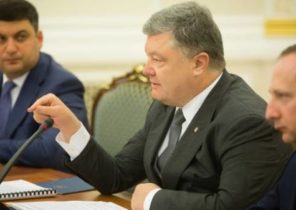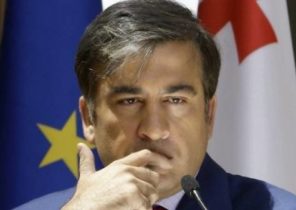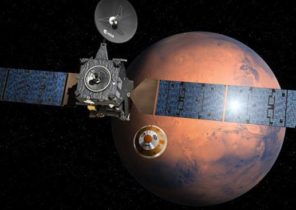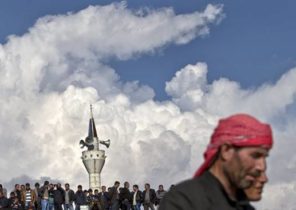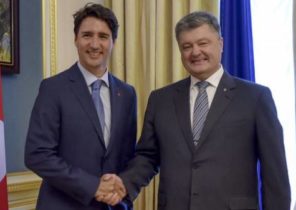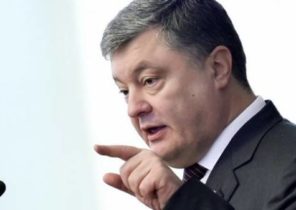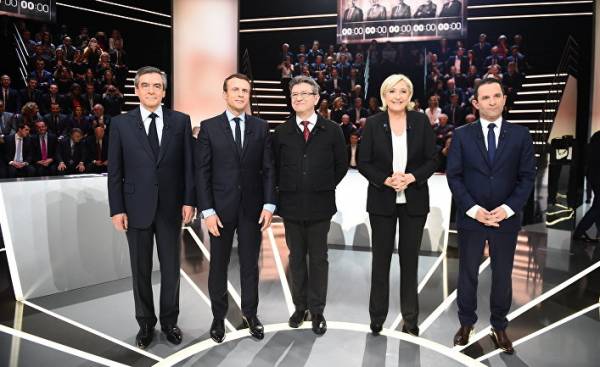
The weakening affected by scandal the presidential campaign of françois Fillon, former Prime Minister of France, popular in the Kremlin, but not among French voters received a sudden rise in the end of last month after reports of his recovery in the polls, and now he heads the group ahead of a vote this Sunday.
“Return visit to the first place in the polls,” was the bold title, contrary to other French surveys, in which a former favourite fell at the third or even fourth place when he was battling allegations of corruption.
But the leadership of Fillon in the polls exists only in the world of alternative facts, which distributes French-language website Sputnik news, a state-funded Russian news service with the motto “Speak the unspeakable”.
On the eve of the first round elections in France the main question is, who’s behind what seems (especially supporters of Macron) repetition of Russian interference in presidential elections in the United States last year.
Does Moscow secretly, as reported by U.S. intelligence agencies before the victory of Donald trump? Or just use the network of politicians, journalists and others in France, shared the views of the Kremlin politics in this country and more?
Whatever the answer, a flurry of fake news and hacker attacks on the computers of the campaign Rules have left many in France and Washington irrepressible sense of deja vu.
It all looks so familiar that recently Senator Richard M. Burr, Republican of North Carolina and Chairman of the Senate intelligence Committee, said, “I think it’s clear that the Russians are actively involved in the French elections.”
Having suffered from allegations that its service has contributed to the spread of false news during the election campaign in the United States, the company Facebook announced last week that her desire to get rid of the “suspicious activity” led to the fact that the company “took action against more than 30,000 fake accounts” in France.
However, it is also clear that Russia is often not so much invading, but simply reinforces existing voices, with which it agrees, in particular against Syria, the threat of American power and the futility of economic sanctions against Moscow.
Natalia Novikova, head of Sputnik in Paris, said that although it seeks to present the Russian view of events, but its activity is concentrated in Moscow, but rather on the French audience that wants to see the events “from a different angle”.
Complaining that him and his staff has repeatedly ignored requests for an interview, she said that Sputnik tried to present all points of view and was unfairly declared the Russian mouthpiece.
“There are many different truths, — said Novikov. — There must be a pluralism of truth.”
Cecile the Vesi, Professor at the University of Rennes 2, study Russia, the Soviets and the post-Soviet period. She said the Kremlin, based on the methods and contacts developed in the Soviet Union, built a “huge machine of influence” in France, aimed at promoting its interests and the interests of its favorites.
Russia or, at least, its state media, support two candidates in the French race. One of them is françois Fillon, who as Prime Minister from 2007 to 2012, struck up a friendship with Vladimir Putin, which, according to rumors, the French policy was sent a bottle of wine after the death of his mother.
Among accusations of fraud Finance, a blow to a campaign visit, there are also charges of receiving $ 50,000 from a Lebanese businessman in exchange for arranging the meeting with Putin.
The Kremlin dismissed the reports as “false news”.
Recent rating Fillon declined significantly. In the polls continues to lead the macron, but the race is now quite tense, so that the final result or the outcome of the referendum on Brexia and presidential elections in America can not justify the predictions of sociologists.
Other Russian favourite is marine Le Pen, leader of the far-right party “national front”, who last month traveled to Moscow to meet with Putin, whom she genuinely admires. Her party, traditionally hostile to the United States and the European Union received millions of dollars in loans from Russian banks.
On the other hand, the Makron is the most Pro-European candidate in the race, and Russia is struggling trying to undermine and divide the EU.
In America, the attitude towards Moscow, which was formed during the cold war, often nullifies the efforts of Russia to establish links with the public. But in France, there are many individuals and organizations that support the views that reflect the opinion of Russia and its preferences on the French elections.
“The machine of influence of Russia,” says Professor the Vesi, to a large extent feeds on the “paradox at the heart of our political discourse: the rapture the United States and the constant denial of this, which ensures absolutely fertile ground for the Russian.”
Anti-Americanism in France has seeped deep among the Central right-wing, encouraging fascination of some politicians with Russia and Putin, who gave Russian news agencies in France, the most vocal Pro-Russian and antimechanistic representatives.
One of them — Nicolas Duic, member of Parliament, Secretary of the friendship group France-Russia and member of the Board of the Association Franco-Russian dialogue, organization, overflowing key figures of the French establishment led by an old political ally of Putin.
It Duik in February, told Sputnik that the Makron a closet homosexual, support the “very wealthy gay lobby”. The statement caused a storm in social networks and in a short time forced Him to defend himself.
However, the furor quickly dried up after the indictment was ridiculed by the candidate and the mainstream media as an obvious exercise in the dark art of “compromising evidence” (the use of compromising information to shame or creating obstacles).
Duic has also contributed to the article “Sputnik”, which ridiculed the Macron, a former investment banker, calling him the “agent of the United States, liberalsim the interests of the banks”.
In an interview, Duik repeated his assertion that the Makron leads a secret double life and ridiculed the allegations of Russian interference, calling them fantasies caused by the paranoia of America.
“I was trained to become a psychiatrist, I know what it looks like paranoia,” he said. Russian “smart enough to understand that their impact on French voters equal to zero, — he added. — Most people don’t even know what Sputnik”.
Indeed, few people are reading or watching Russian news in French, but what do these agencies later turns out to be in social networks. After that, the Russian source is often removed, allowing raw dirt to seep through blogs, Twitter and what the supporters of Macron called “Faistenau” anti-nomenclature and often extreme right-wing sites.
“American phenomenon is repeated here in France,” said Pierre ASCI, the founder of the liberal news website Rue89. “A large part of the population abandoned the mainstream media and gets information from parallel sources. It is a world which has taken its place Sputnik and RT”.
The communications Agency Sputnik on the rise of Fillon in the public opinion polls are based on studies of the Moscow company, engaged in the study of social networks. They were circulated on the Internet, but the hype was not — partially due to the quick reaction of the French authorities, which monitor the statements of the polls.
Using the information of the same Moscow-based company, on Friday, the “Sputnik” re-announced “visit the favorite in the presidential race”, but this time they said that this statement is not based on survey data.
Munir Mahjoubi, one of the campaign chapters of Macron, said that the main objectives of state-funded Russian media — the spread of chaos and uncertainty, undermining the candidature of the Macron, a distraction from legal issues Fillon.
One example: in February, citing, in their words interview of WikiLeaks founder Julian Assange, the newspaper “Izvestia”, Sputnik and RT reported that WikiLeaks has “interesting information” about the Macron, and they are prepared to publish it.
“Assange will add fuel to the fire of the French electoral campaign,” reported RT.
But a spokesman for WikiLeaks said Assange never gave such an interview and just sent a short letter answering a question of the correspondent of “Izvestia”.
Even more vague are thousands of cyber-attacks on the website of the campaign Rules and hundreds of attempts to access accounts e-mail through so-called phishing attacks. The same tactic was used to gain access to the servers of the National Committee of the Democratic party last year.
Nevertheless, the French journalist Damien was Bankal, founder and managing site Zataz, which is engaged in digital security, said that the attribution of such activities in Russia is a wild guess. The computer system of campaign Rules “like Swiss cheese”, — he said, open to attack not only Russia, but also “any 15-year-old with a computer”.
The government took seriously the danger: foreign Minister Jean-Marc Ayrault warned Moscow that “such interference in the French political life is unacceptable,” and the French equivalent of the national security Council in Washington held a special meeting to discuss cyberthreats.
François Heisbourg of the Foundation for strategic research in Paris, expressed doubt that any Russian efforts, regardless of their nature, will have a significant impact on elections. Although at times their highly qualified experts able to plant false information and confusion, but “they often expose themselves by trying to burn it to the ground [someone else’s] house,” he said.
